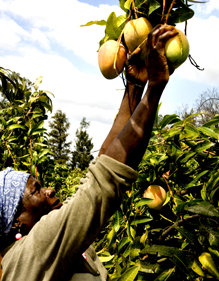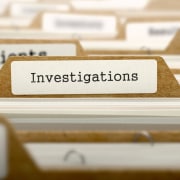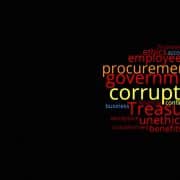|
Getting your Trinity Audio player ready...
|
 By Valencia Talane
By Valencia Talane
For a small village in Limpopo, a community centre provides shelter, meals and life-skills training, mostly to youth who come from disadvantaged backgrounds. The livelihood of such a centre depends on donations from the public and financial support from organisations that give to charities.
The centre was one of more than 700 charities that received help from the National Lotteries Distribution Trust Fund (NLDTF) when it was given a grant at the beginning of 2012.
According to a report sent earlier this year to Corruption Watch, however, trustees of its board paid themselves bonuses at the end of last year, a reward that was at the expense of the project – and a contravention of the terms of their contract with the NLDTF.
Run under the auspices of the National Lotteries Board (NLB), on average the fund gives away R2-billion a year; recipients are charities and organisations in the arts and culture, as well as sports sectors.
Sershan Naidoo, the NLB spokesperson, explained to Corruption Watch how the organisation dealt with cases of fraud and corruption levelled against the charities it supported.
Online reporting tool
“We encourage members of the public to report fraud and corruption through our website,” he says. “We also stress it at workshops aimed at prospective applicants and beneficiaries.”
These workshops, he adds, are held around the country during the board’s annual campaign to invite applications. In areas such as the one in Limpopo where the centre is situated, the NLB uses the media to reach communities. “We advertise in newspapers and community radio stations all over, but in Eastern Cape and Limpopo, the branches do the campaign work themselves.”
Naidoo adds that those who cannot use the electronic help desks are welcome to visit the Pretoria offices – details are below – if they want to report corruption in person. The first port of call for investigating allegations is the NLB’s compliance division, but a more preventative approach is being planned. A monitoring and evaluation department is to be established soon to monitor how the grants are used from the point where they are distributed.
'Double-dipping'
One of the most common examples of fraud and corruption by the NLB’s beneficiaries is “double dipping”, whereby organisations apply for and receive funding from the NLB, despite already having received funding for the same project elsewhere. Naidoo cannot say if, in these cases, the funds will be taken back by the NLB.
“There are cases before the courts but we are not in a position to discuss them since the matter is sub judice,” he says. “We also have leaders of organisations mismanaging the funds given by enriching themselves.”
Another problem is that of fraudulent financial statements that are not prepared by a registered accounting officer, which disqualifies applicants immediately. Asked how the board vetts applicants, Naidoo explains that it checks the validity of the registration details of not only the applicant, which is the organisation asking for funding, but of the accounting officers as well.
These are the individuals who account to the NLB on behalf of the organisations. “Where it is found that the application submitted was misrepresented, the relevant distributing agency, which is responsible for allocating funds, declines the application.”
Distribution agencies that work in the NLB are usually made up of experts in various sectors, who are able to give insight into what kind of support a particular sector needs.
Naidoo concedes that the NLB does not get many reports of corruption involving its beneficiaries, but stresses that it investigates every single report it receives. As a matter of policy, he is not able to tell Corruption Watch how many cases are now before the courts or their charges.
In another report submitted to Corruption Watch, the management of an organisation that was set up to provide rural communities with skills training, is accused of taking the money for themselves. Corruption Watch's media team is following up on this case.
“Where the NLB investigations find fraudulent activity, the case is referred to the NLB risk committee,” says Naidoo. “This is made up of board members, and this is where a decision on the action to be taken is made.” Should the board then decide to take the matter through the criminal justice system, the legal department takes on the task of instituting legal action.
During the presentation of its 2011/12 annual report to Parliament’s portfolio committee on trade and industry, the lack of oversight clout on the activities of distributing agencies was raised as a concern. The committee was concerned that there were clear policies in place regarding transgressions, but nothing on how the selection process for funding could be transparent and free of corruption.
The Department of Trade and Industry, in a presentation to Parliament in 2010, recommended that distribution agencies be included as accountable bodies in the Public Finance Management Act for the NLDTF. This way, decisions made by the agencies – which would then be recognised as national public entities – could be accounted for in Parliament.
To help address potential conflict of interest pertaining to distribution agencies, explains Naidoo, an application is presented to another agency for consideration. That way the member who may be perceived to be affiliated with or influential in a sector cannot preside over the selection process. A committee that is made up of representatives of the NLB, the Trade and Industry Department and the distributing agencies decides on how the swapping can be done.
Funding criteria
Charities that wish to apply for funding from the NLDTF must:
- Be registered as non-profit organisations;
- Have a constitution that is in line with the requirements of the charities sector;
- Prepare annual financial statements with the help of an independent accounting officer registered with a recognised professional financial body;
- Include a business plan that outlines the project’s work and how this will be implemented in its application; and,
- Have a budget with sufficient information on how the money will be spent.
Anyone who wants to report fraud can do so via the NLB website, or to the national office in Pretoria on 012 432 1300 or 0860 065383. The Eastern Cape office can be contacted on 043 711 5000 and the Limpopo office on 015 299 4660.









